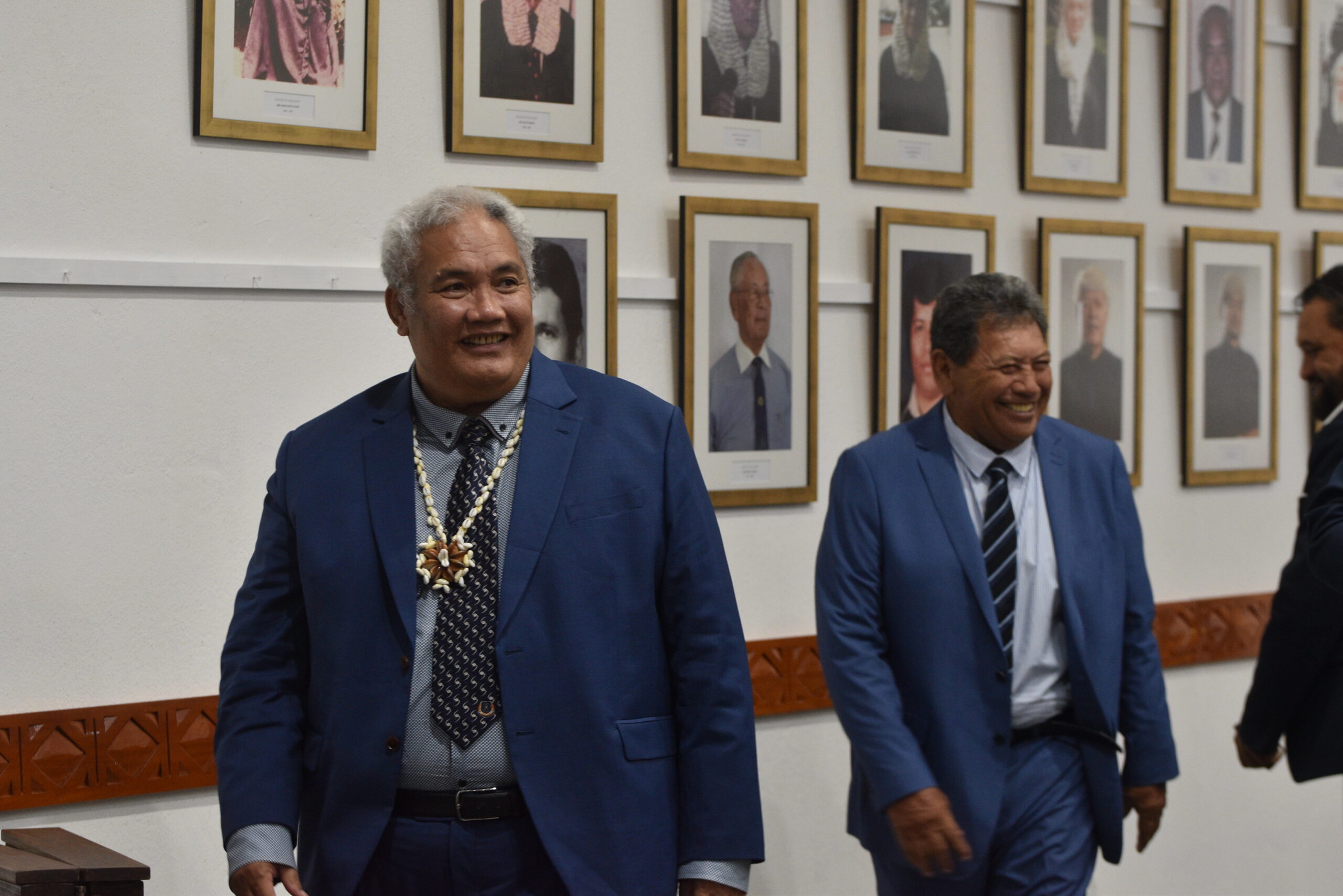Parliament sets 42 sitting days for 2024 session
Friday 15 December 2023 | Written by Losirene Lacanivalu | Published in National, Parliament

MP Tingika Elikana, left. LOSIRENE LACANIVALU /23121376
Cook Islands Parliament approved 42 sitting days for 2024 yesterday, having managed to meet just over half the number of days allocated for 2023.
The Parliament approved 45 sitting days for 2023, but according to Opposition leader Tina Browne, they only sat for approximately 24 days because the Prime Minister, the Ministers or the Cook Islands Party MPs “have to be elsewhere”.
Browne, the leader of the Democratic Party, hopes the 42 sitting days scheduled for next year is fully met
It passed without any objection.
The first sitting for 2024 will be held on February 19 and last for nine days, followed by meetings in May, June, September, and December.
Leader of the House Tingika Elikana, the Cook Islands Party MP for Pukapuka-Nassau, asked his fellow parliamentarians to look at the dates set out, ensure they understand them, and work together. He said the number of sitting days and the specific days were the Business Committee’s recommendations.
Browne, who is a member of the Business Committee, told Cook Islands News last night: “Last year the Parliament approved 45 sitting days. We sat for only 24 approximately. I raised it in the Business Committee: what is the point in fixing a calendar but not complying.”
“However, I accept that the Standing Orders allow sittings to be cut short. Whilst we only sat for 24 approximate days it is nevertheless a huge improvement from the eight days average over the last 10 years.
“If we manage to sit the 42 days as recommended by the Business Committee then that will be a record for the Cooks. That is the reason why we did not oppose. It is still a good number. We simply wait and see whether we will sit for 42 days.”
Browne in 2021 suggested that a good starting point for the number of Parliament sitting days was a minimum of five days a month, or 60 days a year. “The Opposition has long pushed for an increase in sitting days, but this has been consistently ignored,” she said.
Prime Minister Mark Brown on Wednesday tabled the Constitution Amendment (No. 32) Bill which provides for the ability for MPs to hold a proxy vote for a fellow MP.
PM Brown earlier told this newspaper: “With a small Parliament and a large proportion also being part of the Executive government, it has always been a challenge to meet both Parliamentary and Executive needs at the same time. Proxy votes are common in other Parliaments including the NZ Parliament.
“This amendment will allow for Parliament to continue its work, even in the absence of some members.”
This Bill alongside the Constitution Amendment Bill (No. 30) and Constitution Amendment (No. 31) Bill have been referred to a select committee.
The Amendment Bill (No. 30) proposes increasing the number of Cabinet Ministers from six to eight and removing the ability to appoint a Minister who is not a Member of Parliament. The Amendment (No. 31) Bill will allow a new Parliament to commence its work after a general election without waiting for the outcome of any election petitions.
The committee consists of Tingika Elikana as chair, Tina Browne as deputy chair, and Tehani Brown, Tereapii Maki Kavana, Teariki Heather, Toanui Isamaela and Agnes Armstrong as members.
Parliament was adjourned until February 19, 2024.











































